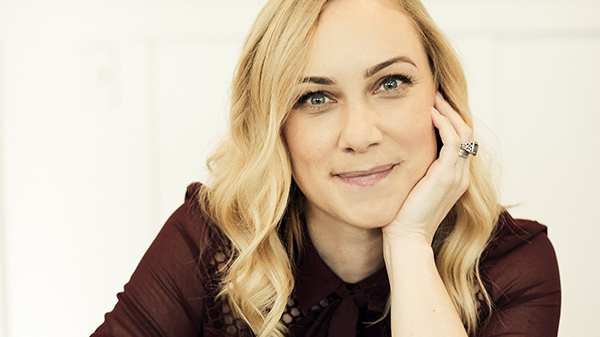
Therapist And YouTuber Kati Morton Shares 3 Tips For Using Social Media As A Tool For Mental Health Support
What level of trust can be placed in a viral reel addressing trauma or a post focusing on identifying narcissists?

By Mark Travers, Ph.D. | June 26, 2023
It's not surprising that a large number of people experiencing mental health issues are drawn to social media to understand what they are going through. A 2022 study published in the Journal of Community Health found that, during the Covid-19 pandemic, individuals turned to online platforms like YouTube for mental health information. The study examined the availability of mental health content on YouTube and revealed that anxiety and depression were frequently addressed in over 50% of the most-watched videos.
But there is skepticism about social media's reliability as a source of support and guidance.
"There is definitely an issue with oversimplification and misrepresentation, especially as the push for shorter content gets more intense," explains Kati Morton, a Licensed Marriage and Family Therapist who also happens to be a successful YouTuber. "It can be difficult to explain something like a panic attack in 30 to 60 seconds, but that's what social media often asks for."
On her YouTube channel, where she has over a million subscribers, Morton creates accessible content on range of mental health topics, aiming to educate and support the general public.
Here are three tips for individuals seeking mental health support on social media.
#1. Scrutinize short-form mental health content
A recent study published in Internet Interventions observed mental health influencers on two social media platforms that rely heavily on short-form content — Instagram and TikTok — to assess how effective their content was in increasing mental health literacy.
The results revealed that only about 24% of mental health content on TikTok and just over 7% of similar content on Instagram were useful for people seeking guidance for specific difficulties. Also, the study found that disclaimers and crisis support information were more likely to appear on Instagram than on TikTok.
It is important to create and consume content that actually provides value.
"Share small portions of an issue or one tool at a time, and explain that you are doing this," says Morton. "It's not foolproof, but it does allow us to more thoroughly cover complex information and give people time to digest it. And, if we are pulling from a larger study or book, I always try to link those in the descriptions or comments of videos too. That way people can do a deeper dive if they have time."
#2. Verify the credentials of mental health content creators
"Check up on who you are watching and see if they have credentials. YouTube now offers a blue bar below all of my videos that says I am a licensed professional, so they are actually checking our licenses and letting the audience know I am verified," says Morton.
While social media companies are trying to do their part to verify credentials and regulate sensitive content, it is important to note that the onus for being responsible content consumers ultimately lies with the viewers themselves. As online content remains largely unregulated, adopting a skeptical attitude towards mental health content is essential.
#3. Understand the relationship between social media and mental health
We also need to consider that social media is known to increase anxiety and depression in users. So, is it possible that consuming mental health content could result in a vicious cycle?
No matter how 'healthy' the content we consume is or how clean we keep our feed, social media's core design features of attention monopolization and sensationalism will always pose a threat to our well-being.
"I put a lot of trust in my community online and give them a sense of ownership over it. I also utilize many of the tools offered on the back end of most social media sites to ensure that the comment sections don't hurt or harass. I also talk about this issue, and consistently ask my audience to notice how they feel before and after being on social media," Morton explains.
Given the nature of social media, addictive patterns may emerge with an individual relying heavily on social media creators to 'feel better.' Ensure to take sufficient social media breaks, and reach out to a mental health provider if you feel you may have a problem controlling your social media usage.
Conclusion
The role of a mental health creator is to empower their viewers with knowledge, equipping them with information about symptoms, conditions, and available treatment options. This information helps individuals gain a better understanding of their own experiences and navigate their mental health journey effectively. However, remember to be skeptical of what you see online – verify the credentials of mental health creators, ensure you don't blindly trust oversimplified short-form content, and avoid relying heavily on social media as a method to improve your mental health.
